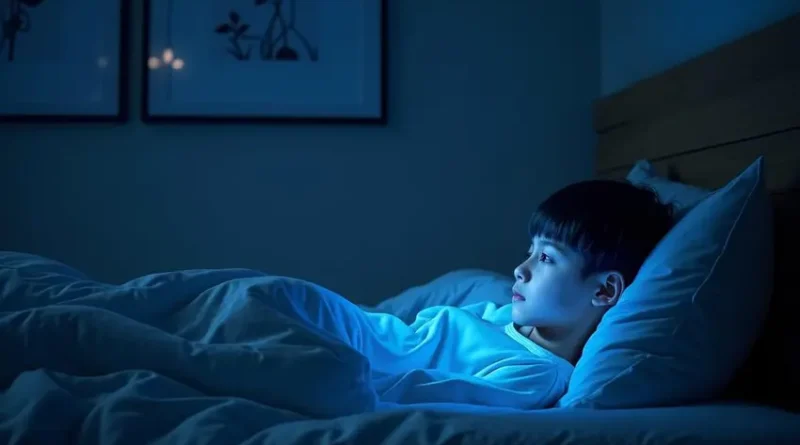The Negative Effects of Blue Light on Sleep
In our constantly connected world, we have access to screens like never before. Whether it’s scrolling through social media on a phone, binge-watching TV shows, or working late on a laptop, blue light is all around us. While these devices offer convenience and entertainment, the question arises: what impact does blue light have on our sleep?
Blue light is a high-energy visible light that is emitted by digital devices and fluorescent lighting. It plays a crucial role in regulating our circadian rhythms—the internal clock that tells our bodies when to wake up and when to sleep. However, exposure to blue light, especially in the evening, can disrupt these rhythms, leading to a range of negative effects on sleep quality.
To understand the consequences of blue light exposure, it’s essential to delve into how our bodies respond to light throughout the day. During daylight hours, exposure to natural light boosts alertness and cognitive function. However, as the sun sets, our bodies naturally start to produce melatonin, a hormone that signals to us that it’s time to wind down. When we expose ourselves to blue light in the evening, this process can be interrupted.
Numerous studies have demonstrated that blue light can suppress melatonin production, which can lead to difficulties falling asleep. The impact is notably pronounced in children and young adults, but it can affect people of all ages. A research study published in the journal SLEEP noted that individuals who used electronic devices before bed took significantly longer to fall asleep and experienced a diminished perception of sleep quality compared to those who refrained from screens.
Aside from hindering melatonin production, blue light exposure also impacts the quality of the sleep we do manage to get. Some studies suggest that exposure to screens leads to fragmented sleep—a pattern where individuals wake up multiple times throughout the night. This fragmented sleep can prevent individuals from reaching the deep, restorative stages of sleep that are crucial for physical and mental recovery.
The effects of disrupted sleep can be far-reaching. Lack of quality sleep can lead to numerous health issues, ranging from cognitive impairments, such as decreased attention and memory recall, to more serious conditions like obesity and cardiovascular disease. Moreover, the immediate effects of poor sleep can include irritability, mood swings, and increased stress, further perpetuating a detrimental cycle.
Understanding the negative effects of blue light on sleep is crucial for making intentional lifestyle changes. Here are some practical tips to reduce blue light exposure and promote better sleep:
- Establish a Digital Curfew: Aim to put down devices at least one hour before bedtime. This allows your body to transition into sleep mode without the interference of blue light.
- Use Blue Light Filters: Many devices now come with settings that can reduce blue light emission. You can also invest in specialized glasses designed to block blue light.
- Create a Relaxing Bedtime Routine: Try reading a physical book, practicing relaxation exercises, or meditating in the hour leading up to sleep instead of scrolling through your phone or watching TV.
- Optimize Your Sleep Environment: Ensure your bedroom is dark, cool, and quiet. Consider using blackout curtains or eye masks to block out any remaining light.
- Expose Yourself to Natural Light During the Day: Make a conscious effort to get outside during daylight hours. Natural light can help reinforce your circadian rhythms and improve sleep quality.
In addition to lifestyle changes, recognizing the importance of sleep hygiene can go a long way. Maintain a consistent sleep schedule by going to bed and waking up at the same time each day. This helps regulate your body’s internal clock and can improve sleep quality over time.
Lastly, it’s important to listen to your body. If you find that you’re consistently struggling with sleep, it may be beneficial to speak with a healthcare professional. They can provide insights tailored to your specific needs and help rule out any underlying sleep disorders.
While our devices are essential for modern living, it’s crucial to be aware of the potential downsides they introduce, particularly regarding sleep. By adopting smarter habits around blue light exposure, we can take significant steps toward improving our overall health and well-being.

